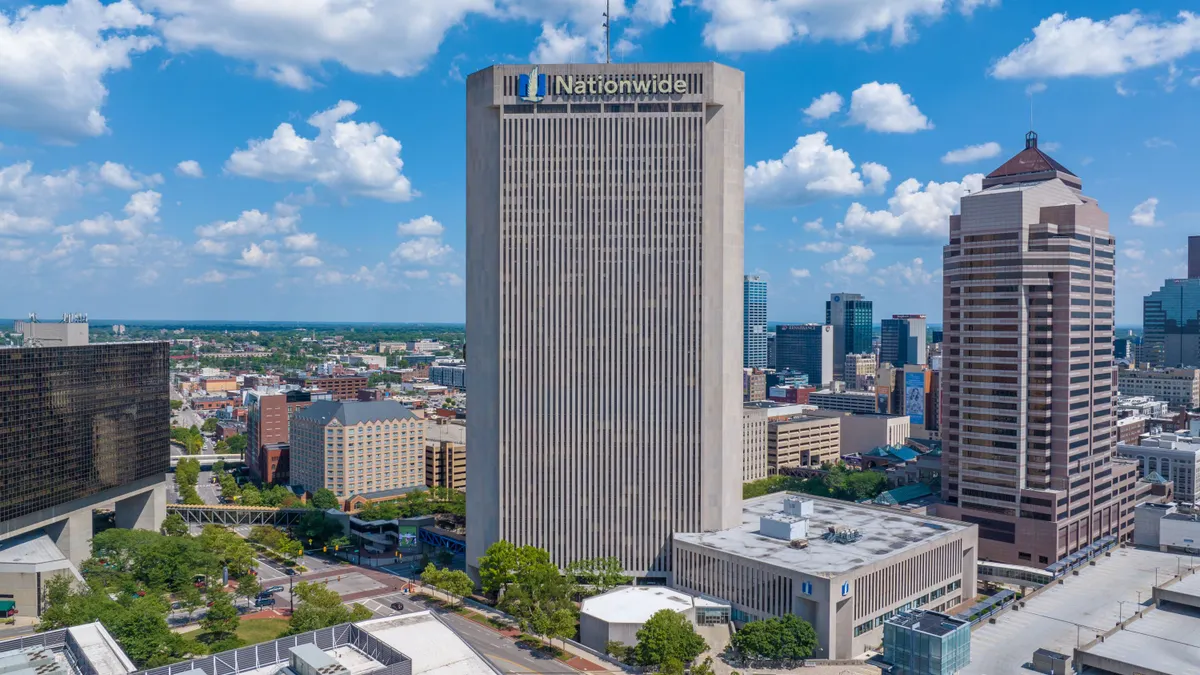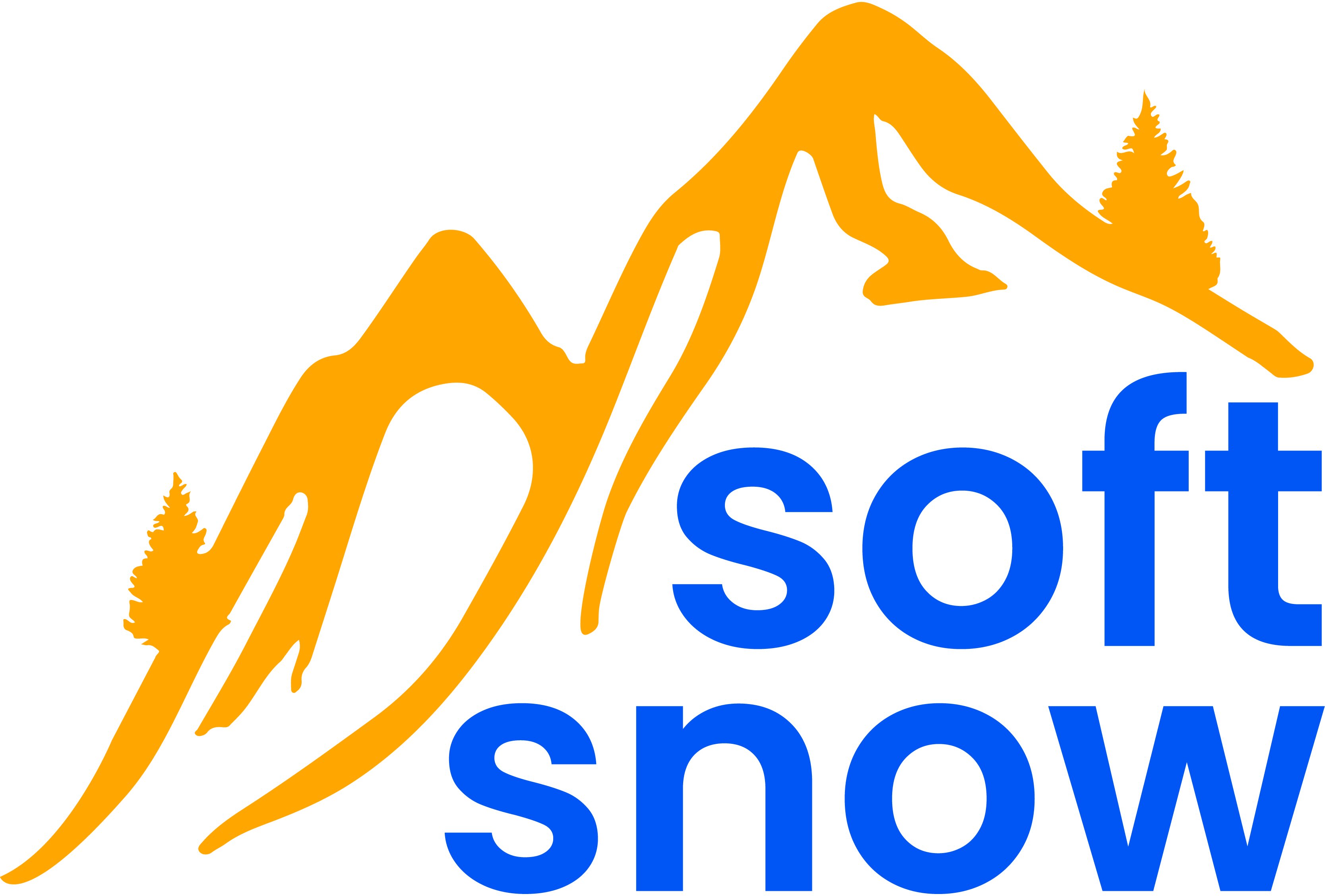Editor's note: This article is part of The Water Cooler, a recurring column for technology executives to digest, discuss and debate. Next up: How did you become a CIO? Email us here.
Careers don't follow a linear path. One opportunity, connection or chance can shift the trajectory of a career, especially as companies grow and technologies change.
Responsibilities, too, can change over time. Leaders take on stretch roles that showcase abilities long before there is a title (or salary) to match. Whether new job opportunities or lateral shifts into another department, executives can get creative about what's next. And sometimes, mentors are required to highlight what's possible.
Jobs also have a way of evolving and surprising people. An individual who began as a systems administrator may have the bones of a chief information officer. The technical know-how is there — all someone needs is a sprinkle of leadership training and experience.
CIO Dive spoke with ten technologists about how they got their start. Answers range from internships to space centers to consulting, but the common denominator? Everyone starts somewhere.
(The comments below have been lightly edited for length and clarity.)
Molly Brown, VP of engineering at Qumulo
"I was in 7th grade, and it was still the age of the floppy disk. It was a small company that did software training, and I had to do data entry and make copies of the digital and printed class materials."

Molly Brown
VP of engineering, Qumulo
I count my first tech job as my first job that used computers. I was in 7th grade, and it was still the age of the floppy disk. It was a small company that did software training, and I had to do data entry and make copies of the digital and printed class materials.
I later pursued a computer science degree and ended up going back as an intern for that same company to build custom business applications. It gave me the bug to build, and I went on to work for Microsoft as part of the base OS team for Windows. I was an engineer at Microsoft for more than 14 years, but I missed working at a startup, which brought me to Qumulo in 2014.
That first gig in middle school was my foray into the world of software engineering. It jump-started my passion for giving people the technology tools they need to navigate a software-based world, and helping them adapt to whatever new tools are coming next.
Thayer Tate, CTO at SOLTECH
"While any IT professional needs hard skills and must build their early reputation based upon their independent contributions, the ones that will grow into IT leaders are those that also build their communications and leadership skills with equal fervor."

Thayer Tate
CTO at SOLTECH
My first professional job in technology was working for Price Waterhouse as a technology consultant. I graduated from Georgia Tech with a degree in industrial engineering and the big six consulting firms recruited heavily from colleges with strong computer science and engineering schools.
Consulting was a high-paced environment with weekly travel, and my work weeks typically ranged from 60-80 hours per week. While it was an exhausting four years, I learned more in that period than I have at any other position I've ever held. I was eager to build my career and hungry for knowledge and there was no lack of work to do and experience to gain.
Like any new IT professional, I was focused on learning new technologies as my key skill for future career growth. I would later come to realize that some of the most valuable skills I learned in those early days were soft skills, such as leading meetings, setting client expectations, and how to effectively communicate with clients and teammates.
While any IT professional needs hard skills and must build their early reputation based upon their independent contributions, the ones that will grow into IT leaders are those that also build their communications and leadership skills with equal fervor.
Sean Chou, CEO and co-founder at Catalytic
"Beyond the very early career trajectory, an incredibly valuable piece of career advice (that I hope to one day fully embrace) is to learn the power of no."

Sean Chou
CEO, co-founder at Catalytic
To start, I didn’t always want to work in IT. I actually earned my degree in psychology and was unaware of the different paths within IT. It wasn’t until I became passionate about the internet and early web that I found myself in IT. My first IT job was to build out the first website for the University of Illinois’ MBA program in 1996. I was learning as I was doing; and luckily, the whole world was also just learning about the web at the time.
In college, I was a pre-med psychology student getting ready to take the MCAT to apply for medical school. I was given a piece of advice that quite literally changed the course of my life. My mentor, Paul Magelli, told me that I needed to do what I was passionate about and not just what I thought others wanted me to do. Second, that I could do much more than I thought I was capable of.
Beyond the very early career trajectory, an incredibly valuable piece of career advice (that I hope to one day fully embrace) is to learn the power of no. As someone who likes a lot of challenges and whose mind loves to wander over multiple problems, I find that "no" reduces the noise in my mind, creating greater clarity and sense of purpose.
Michael Affronti, SVP of product at Dataminr
"It was my first lesson in product development – the importance of customer research."

Michael Affronti
SVP of product, Dataminr
My first professional tech industry experience was as a software engineering intern for MTV Networks at the age of 16. As a part of the program, one of my projects included helping to build out an interactive website for Noggin, a then-new educational kids' channel.
In order to learn more about the intended audience and how to best engage them on a digital platform, I went on several field trips and interviewed various kids to learn more about what would motivate them to go on the website or spend more time engaging with it. It turns out, all they wanted was games.
It was my first lesson in product development – the importance of customer research. Everything you do in product development should be rooted in your customer’s needs, wants and motivation. The success of any product or service is dependent on the team understanding its audience.
Marc Woolward, CTO and CISO at vArmour
"What I ultimately took away from that first job is that curiosity is an engineer’s most crucial characteristic, and the key to enriching your knowledge and skill set."

Marc Woolward
CTO & CISO, vArmour
Straight out of college, I became a systems administrator for the bank of the British Royal Family – back in the late 80s, during the rapid transition to personal computers and peer-to-peer networking.
I could see that this form of communication was revolutionary, and decided to seek out opportunities to work on the TCP/IP projects that were standardizing internet security at the time.
By asking incisive questions and raising my hand for new opportunities, I quickly became the go-to networking guy and, eventually, the bank’s first head of networking. I learned that open, flexible networks need to be highly secure, especially as they increase in size and scale, and that security is much easier to build into an architecture than to retrofit later.
What I ultimately took away from that first job is that curiosity is an engineer’s most crucial characteristic, and the key to enriching your knowledge and skill set. That principle has proven true again and again for me over the last three decades.
Anne Hardy, CISO at Talend
"When I engaged with my network to discuss what could be next for me, I realized that my past security experience combined with my broad business experience, made me a great fit for a CISO role."

Anne Hardy
CISO, Talend
I grew up in France and was very interested in science. My dream job was to be a test pilot, but I was told this was not a career for a woman. So, I continued with math, studied engineering and became a software engineer.
My first job was in the telecom industry, and then I moved to IT and then took the next step into security, managing security research and working with a lot of security experts. It was fascinating to me, but my career changed after my second move to the United States, and I switched my focus to other information technology domains.
Three years ago, I was thinking about what to do next. I had been involved in many business aspects, from marketing to operations to technical and community roles. When I engaged with my network to discuss what could be next for me, I realized that my past security experience combined with my broad business experience, made me a great fit for a CISO role. It was fortuitous. In a COVID-era world, cybersecurity has become an even more crucial business issue, and companies worldwide see its impact.
Rani Johnson, CIO at TIBCO
"During my time there, I was part of a team that developed a software program to collect, manage and distribute electrical power among the various modules of the International Space Station Alpha (ISS-A) and received an award for outstanding contribution."

Rani Johnson
CIO at TIBCO
From an early age, I was interested in technology and had a desire to see how everything worked. I grew up in the Houston area, where I was exposed to different fields within science, technology, and engineering. I knew I wanted to pursue a career in STEM and spent my summers at various STEM camps.
My first job in tech was as a computer scientist at NASA’s Johnson Space Center. During my time there, I was part of a team that developed a software program to collect, manage and distribute electrical power among the various modules of the International Space Station Alpha (ISS-A) and received an award for outstanding contribution.
Since then, I’ve had the opportunity to work with several tech companies. I’ve been directly involved in the development of new technologies and strategic business outcomes. I lived in Palo Alto in 1999 during the IPO craze, and that’s when I became familiar with TIBCO.
David Politis, CEO at BetterCloud
"Within six months they let everyone at the company go except for me and an engineer. At lunch one day they said, 'Dave, you'll be the CEO and the engineer will be the CTO, are you good with that?' Of course I said yes."

David Politis
CEO, founder at BetterCloud
After graduating from college I started working at a small technology startup of about 15 people. It was founded by two successful entrepreneurs who had built a previous company together.
At the time that I started my job the two co-founders weren't involved in the day-to-day operations of the business. They had hired a number of experienced executives to run the business but the approach and business model wasn't working.
Within six months they let everyone at the company go except for me and an engineer. At lunch one day they said, "Dave, you'll be the CEO and the engineer will be the CTO, are you good with that?" Of course I said yes.
Over a period of six years, we pivoted the business from being a consumer product to an enterprise SaaS platform. We generated tens of millions of dollars in revenue, served over 10,000 businesses and had almost 200 employees. I learned a lot through that experience, both what to do and what not to do. That experience shaped who I am today and how I lead BetterCloud.
Alex Kvamme, CEO at Pathlight
"I interned at Apple the summer before the iPhone was released. I remember seeing people playing around with black devices in their hands and hearing others whisper about a 'phone project.'"

Alex Kvamme
CEO at Pathlight
My first "job" in tech was actually an internship. I interned at Apple the summer before the iPhone was released. I remember seeing people playing around with black devices in their hands and hearing others whisper about a "phone project."
At the time, I don't think anyone truly realized how transformational that product would be. That's the beauty of technology: A small group of smart and passionate people working together can build something that impacts millions of people.
Kalle Törmä, CEO and founder at Flowhaven
"It was around this time that I started to understand how fragmented the licensing process was — and that technologies that served this function were outdated, and in many cases non-existent."

Kalle Törmä
CEO and founder at Flowhaven
My first tech job was with the licensing and merchandising team at Angry Birds early in their success back in 2012. I quickly rose through the ranks and, in under two years, I went from licensing trainee to licensing operations specialist at the company.
In this role, I created and implemented the IT infrastructure and operations blueprint for the company’s active consumer products program. It was around this time that I started to understand how fragmented the licensing process was — and that technologies that served this function were outdated, and in many cases non-existent.
Correction: This article has been updated to reflect Molly Brown is the VP of engineering at Qumulo and Thayer Tate is the CTO at SOLTECH.






















